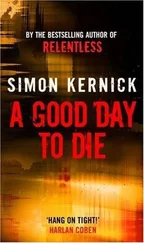“Why do I have to call dad Captain?” Tommy wonders.
“Well, son, he believes he’s gambling on a riverboat in a past century,” Horace reveals. “Truth is, he was born bad. Forty-six hours in labor and eleven pounds, ten ounces. Nearly killed his mother. She ended up dying at thirty-one.”
“Did she have red hair?” he wants to know.
“Nobody in six generations of this colony had that hair,” his grandfather assures him. “Born like that, he was. Full head of crimson curls. Whole scalp covered. Some thought it disturbed his thinking.”
Tommy is blond like his mother, small-boned and blue-eyed. His father has a mutation that interferes with his judgment. It’s a form of plaque barricading his syntactical flow like a dam in a creek. It’s a genetic heresy animals sense. In fact, Captain’s antipathy to the limited animal repertoire may have a more complex source. Maybe he’s receiving encrypted signals from another galaxy. When he’s a biochemist, he’ll analyze this abnormality.
“He didn’t file a missing person report,” Tommy tells the man who is his mother’s father.
“She’s not exactly missing, son,” Horace replies. “She was in Cook County Jail last week.”
School will be closed tomorrow and the roads impassable. Tommy knows he’ll be inside all day, scooping up dead angelfish with a ladle and eating canned tomato soup. His mother used the a Betty Crocker cookbook and he knew what dinner would be when he woke up. Meatloaf on Monday with beans and mashed potatoes. Wednesday was lasagna and raison and carrot salad.
“Maybe I could visit sometime,” he offers, cautiously. Tommy is shy and frightened and trying to man up. He’s in a cross current and has the sensation that he may fall down. He has frequent episodes of vertigo that he doesn’t mention to anyone. He’s grown five inches this year and feels his bones straining. His voice has changed, and he barely recognizes it. He may look entirely different when school resumes. Maybe he can assume an alias and start his life over. Or maybe he’ll be invisible.
Tommy knows he’s a compendium of accurate observations, but when he tries to assemble them, they collapse as disassociated images. Maybe he has a touch of his father’s contagion. That’s why Captain didn’t want him to join Boy Scouts and get an astronomy badge. In Boy Scouts he might have stumbled on Captain’s mystery with a telescope.
He wonders what his grandfather Horace Bowen thinks about the Heisenberg Principal of Uncertainty and reincarnation. What exactly is human nature? Do the Amish believe in Jesus and eternal damnation? Are they pacifists like his parents?
Tommy’s perceptions are vivid but contradictory. He believes in the scientific method and also the surreal and fantastic — charms and spells, demons and the afterlife, voodoo and the curses of shaman. In this plateau of overlapping riptides, he’s afflicted by alternative selves diverging and reappearing with clarity.
He’s convinced some can foretell and move objects with their thoughts. It’s a sensitivity some are born with like perfect pitch and eidetic memory. He wonders if the Amish believe in ghosts, vampires, evolution and a flaming hell. Who qualifies for punishment? Do they support capital punishment and hang the guilty? Do they cut off the hands of thieves? Is there a hierarchy of transgression? What about mothers who run away from their sons?
Tommy exists in spasms of sharp insight and overwhelming grief. He’s so many ages at once, he entertains the notion that he’s living his incarnations simultaneously. Galileo recants but gets house arrest anyway. Leo Szilard crosses a London street in 1922 and invents critical mass. He patents it and doesn’t get a dime. Copernicus’s books are banned and burned. Marie Curie is enraged and demands the return of her hands. At White Sands, Oppenheimer chants, “Now I am become Death, the destroyer of worlds,” in Sanskrit. Teller calls the FBI and rats him out.
“I know a lot about bluetongue and colic, abscesses and bacterial infections,” he finally offers.
“Sure you do, son,” Horace says. “I’ll think on it.”
His grandfather telephones the following summer. Tommy is observing pink finches with binoculars. They’ve constructed nests in the eaves of the porch between twisted branches of Wisteria his mother planted. There are blue finches, too, and huge raucous blue jays. A pack of grackles stayed a noisy week and flew away. Robins with burnt orange breasts search for worms on the lawn. A pair of small cardinals keep crashing into the front windows.
“Kamikazes,” his father says, walking out to the Buick. Captain has a particular distaste for birds. “Somebody dares bring me a parrot or canary, I’ll eat it.”
Tommy has read the biographies of physicists, chemists, biologists and astronomers. Many began as naturalists. Science is about observation. He has a book titled Birds of Pennsylvania with photographs and descriptions he finds confusing. He can’t establish an absolute border between black and charcoal gray. It depends on the sunlight, passing clouds and sight angles. The question of how they are flying is ambiguous. He’s watches nuthatches, Carolina wrens, and chickadees. If he’d joined Boy Scouts, he’d instantly recognize raptors. Their wings flutter and ripple as they fly. Are they hawks or turkey vultures? Captain is in a poker tournament at Flaming Arrow. Last month, he finished third.
“Your mother got in some trouble in Tucson, Arizona, son,” Horace Bowen tells him. “Seems she was sleeping on a golf course. They charged her with trespassing and vagrancy. Dragged her away in cuffs.”
“Is Mom crazy?” he finally dares to ask.
“More like scratching an itch with a blowtorch,” Horace says. “She used to chase lightning. Didn’t play with dolls. Wouldn’t touch them. She treated them like poison. She was barn building at 10. Then she wins the Gold Crescent. First time a girl won. Just turned 16. She had a perfect score. They couldn’t deny her. She had scholarship offers from Harvard and McGill. She was packing her suitcase.”
“Where was she going?” he wants to know.
“Berkeley, California.” Horace says.
“What happened?” Tommy asks.
“He came back on a motorcycle. Claimed he bought it for twenty dollars. He’s wearing a black silk cape and top hat. Looks like he’s going to a party with the royal family. He’s moving like a feral cat, fast and balanced and graceful-like. So tall, you have to look up to see his face. It sets an attitude. Everybody’s craning their neck and he’s acting like nature exalted him. Big as a hill, he is, and a certified veterinarian. Talking all lofty about Woodstock and stopping the Vietnam War. He’s waving his arms around like an orchestra conductor. Few years before, he won the Governor General’s Gold Crescent, too.”
“I know,” Tommy says.
“Her score was better,” Horace informs him.
“Why did you let them stay?” he wonders.
“They were purified by sincerity,” Horace answers. “Two wildfires, they were. We thought they’d put each other out naturally.”
“What happened?” Tommy asks.
“Wind changed direction,” his grandfather replies.
There is a pause. It expands like accordion suitcases with concealed compartments with zippers and flaps that snap shut. You could put the forest past 5 Eagle Creek inside, all of Revolution Hill, Gypsy Ridge and Cistern of the Sage. But if the wind abruptly stopped, the suitcase with the forest would drop through the ground. A tunnel would open and you might fall to the core of the Earth.
“Can you make her come back?” his voice has wavered, then cracked.
“I surely cannot,” Horace immediately replies. He’s surprised.
Читать дальше






![Джон Харгрейв - Mind Hacking [How to Change Your Mind for Good in 21 Days]](/books/404192/dzhon-hargrejv-mind-hacking-how-to-change-your-min-thumb.webp)





